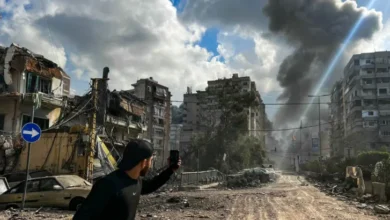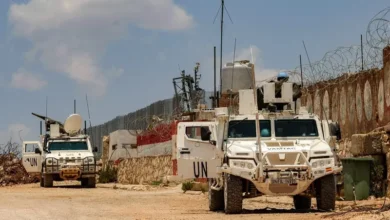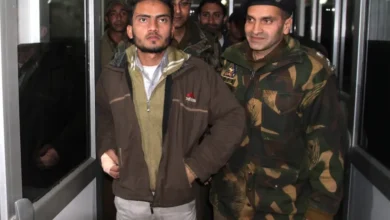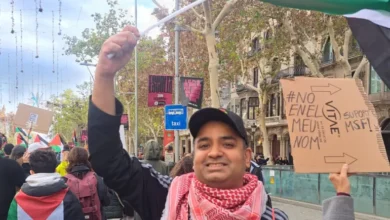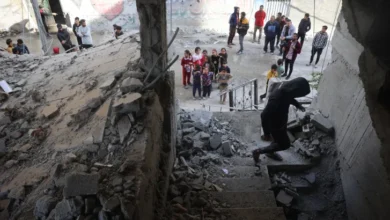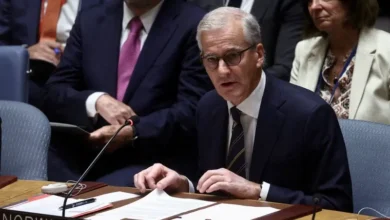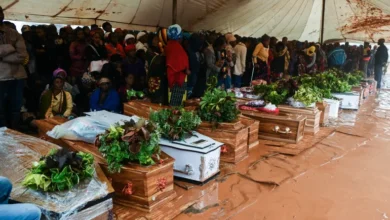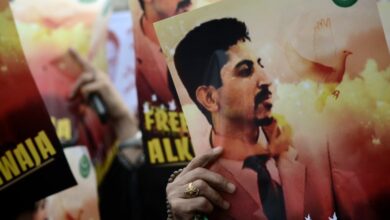Police arrest dozens, clear pro-Palestine encampment at George Washington University

Police began to clear a Pro-Palestinian tent encampment at George Washington University early Wednesday, hours after dozens of protesters left the site and marched to President Ellen Granberg’s home.
“Officers gave their third and final warning to demonstrators to move at about 3:30 a.m., saying all who remained in U-Yard and the stretch of H Street in front of the plaza would be arrested,” according to GW Hatchet, the university’s independent student-run newspaper.
Officials at the university in Washington, D.C., had warned in statements of possible suspensions for students engaging in protest activities on University Yard.
“While the university is committed to protecting students’ rights to free expression, the encampment had evolved into an unlawful activity, with participants in direct violation of multiple university policies and city regulations,” the university said in a statement.
Local media had reported that some protesters were pepper sprayed as police stopped them from entering the encampment and nearly 30 people had been arrested, according to community organizers.
Tuesday evening, protesters carrying signs that read, “Free Palestine” and “Hands off Rafah,” marched to Granberg’s home. Police were called to maintain the crowd. No arrests were made.
This comes as Mayor Muriel Bowser and Metropolitan Police Department Chief Pamela Smith are set to testify about the District of Columbia’s handling of the protest at a House Committee on Oversight and Accountability hearing on Wednesday afternoon.
A pro-Palestinian tent encampment was cleared at the University of Chicago on Tuesday after administrators who had initially adopted a permissive approach said the protest had crossed a line and caused growing concerns about safety.
University President Paul Alivisatos acknowledged the school’s role as a protector of freedom of speech after officers in riot gear blocked access to the school’s Quad but also took an enough-is-enough stance.
“The university remains a place where dissenting voices have many avenues to express themselves, but we cannot enable an environment where the expression of some dominates and disrupts the healthy functioning of the community for the rest,” Alivisatos wrote in a message to the university community.
Tensions have continued to ratchet up in standoffs with protesters on campuses across the US — and increasingly, in Europe — nearly three weeks into a movement launched by a protest at Columbia University.
Some colleges cracked down immediately on protests against Israel’s war on the Gaza Strip, which has so far killed more than 34,000 Palestinians.
Among those that have tolerated the tent encampments, some have begun to lose patience and call in police over concerns about disruptions to campus life, safety and the involvement of nonstudents.
Since April 18, just over 2,600 people have been arrested on 50 campuses, figures based on AP reporting and statements from universities and law enforcement agencies.
